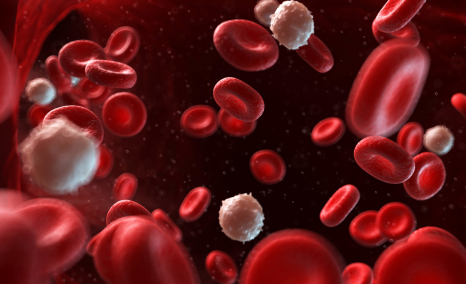The approval is based on the Phase III RESTORE study, which demonstrated that CTEXLI significantly reduced urine bile alcohol levels (p<0.0001) and improved serum cholestanol levels, key markers of disease progression. Patients on CTEXLI had a 20-fold lower bile alcohol level compared to those on placebo, and more placebo-treated patients required blinded rescue therapy, further highlighting the drug’s effectiveness.
“CTX is a devastating disease that is often diagnosed in early adulthood with progressive symptoms that impact quality of life,” said Jean Pickford, Executive Director of the CTX Alliance. “We are thrilled that CTEXLI is now approved and hope patients can receive treatment earlier to prevent irreversible complications.”
SIGX1094 Granted FDA Fast Track Designation as a Potential First Targeted Therapy for Diffuse Gastric Cancer
Signet Therapeutics, a clinical-stage biotech company specializing in organoid- and AI-driven cancer drug discovery, announced that the FDA has granted Fast Track Designation to SIGX1094, the world’s first potential targeted therapy for diffuse gastric cancer (DGC). The designation aims to accelerate the development of therapies addressing serious diseases with unmet medical needs. In November 2024, SIGX1094 also received an Orphan Drug Designation (ODD) from the FDA.
“Receiving Fast Track Designation for SIGX1094 underscores the FDA’s recognition of both the serious, life-threatening nature of diffuse gastric cancer and the potential of SIGX1094 to address this critical medical need,” said Dr. Haisheng Zhang, founder and CEO of Signet Therapeutics. “This milestone highlights our commitment to rapidly advancing innovative cancer treatments through our organoid and AI platform.”
SIGX1094 was developed using Signet’s proprietary organoid + AI drug discovery platform, in collaboration with XtalPi (2228.HK), a leader in AI-driven drug discovery. It is the first therapy to be developed through the integration of organoid models and AI, marking a significant advancement in the treatment of DGC, a highly aggressive cancer with no approved targeted therapies. The drug is currently being evaluated in a Phase I clinical trial at Beijing Cancer Hospital in China.
“SIGX1094 represents a major step forward in the treatment of DGC, a cancer with very limited therapeutic options,” said Dr. Zhang. “Fast Track Designation will allow us to work closely with the FDA to expedite its development and potentially bring this breakthrough therapy to patients sooner.”
With Fast Track Designation, Signet Therapeutics will benefit from early and frequent FDA interactions, potential accelerated approval, priority review, and rolling review—all aimed at fast-tracking SIGX1094’s path to market.
Bavarian Nordic’s Virus-Like Particle Chikungunya Vaccine Approved by FDA for Ages 12 and Up
Bavarian Nordic A/S announced that the FDA has approved VIMKUNYA (Chikungunya Vaccine, Recombinant) for individuals 12 years and older, making it the first virus-like particle (VLP) single-dose chikungunya vaccine in the U.S. The approval was granted under Priority Review based on results from two Phase III trials involving over 3,500 participants, where up to 97.8% of vaccinated individuals developed neutralizing antibodies within 21 days. The vaccine was well tolerated, with mild to moderate adverse events reported.
“The approval of our chikungunya vaccine is a testament to our unwavering commitment to addressing unmet medical needs and protecting communities worldwide,” said Paul Chaplin, President and CEO of Bavarian Nordic. “As climate change expands the reach of mosquito-borne illnesses, this milestone underscores the importance of innovative solutions to safeguard travelers and vulnerable populations.”
Alongside the approval, the FDA awarded Bavarian Nordic a Priority Review Voucher (PRV) under the Tropical Disease PRV program, which the company plans to monetize when the time is right. VIMKUNYA is set for commercial availability in the U.S. in the first half of 2025.
“We are proud to provide the first vaccine specifically approved for the prevention of chikungunya virus in individuals aged 12 and over, offering a critical tool to combat this growing health challenge,” added Chaplin.
The vaccine also recently received a positive opinion from the EMA’s Committee for Medicinal Products for Human Use (CHMP) and is expected to launch in key European markets in the first half of 2025, pending final approval by the European Commission.
Ultragenyx Secures FDA Priority Review for UX111 Gene Therapy to Treat Sanfilippo Syndrome Type A
Ultragenyx Pharmaceutical Inc. announced that the FDA has accepted its Biologics License Application (BLA) for UX111 (ABO-102), an AAV gene therapy for Sanfilippo syndrome type A (MPS IIIA). The FDA granted Priority Review with a PDUFA action date of August 18, 2025, signaling the potential for accelerated approval of the first-ever treatment for this devastating neurodegenerative disease. The FDA also indicated that it does not currently plan to hold an advisory committee meeting for the application.
“Acceptance of the UX111 BLA brings us closer to providing a first-ever treatment for Sanfilippo syndrome type A, and if our application is successful, we’re prepared to launch this therapy for patients and their families,” said Emil D. Kakkis, M.D., Ph.D., CEO and president of Ultragenyx. “By reaching alignment with the Agency on a path forward for accelerated approval in neuronopathic MPS diseases, our UX111 program could help advance drug development for multiple metabolic diseases of the brain.”
The BLA submission is backed by data from the pivotal Transpher A study and long-term follow-up trials, which demonstrated that UX111 led to a rapid and sustained decrease in cerebrospinal fluid (CSF) heparan sulfate (HS), a key disease biomarker, regardless of patient age or disease stage. The treatment also showed statistically significant improvements in cognitive and communication functions compared to untreated patients. Mild to moderate liver enzyme elevations were the most common treatment-related adverse events, all resolved.
If approved, UX111 would become the first gene therapy for Sanfilippo syndrome type A, offering new hope to families affected by this progressive and life-threatening disease.
Indivior Receives FDA Approval for SUBLOCADE Label Updates
Indivior PLC announced that the FDA has approved label updates for SUBLOCADE, introducing a rapid initiation protocol and alternative injection sites. These updates mark a significant step forward in improving treatment flexibility for moderate to severe opioid use disorder (OUD).
Under the new rapid initiation protocol, healthcare providers can administer SUBLOCADE after a single dose of transmucosal buprenorphine, with just a one-hour observation period to confirm tolerability. Additionally, the FDA has expanded the approved injection sites beyond the abdomen to include the thigh, buttock, and back of the upper arm, increasing patient comfort and provider flexibility in delivering treatment.
“These label updates for SUBLOCADE underscore our dedication to evolving our treatment options to better serve individuals battling opioid use disorder,” said Dr. Christian Heidbreder, Ph.D., Chief Scientific Officer at Indivior. “These enhancements not only reflect our commitment to patient-centered care but also our ongoing efforts to align our treatments with real-world clinical needs, thereby potentially improving patient adherence and outcomes.”
The expanded flexibility in initiation and administration could help reduce treatment barriers, streamline care delivery, and improve patient retention rates. A clinical study supporting rapid induction, involving 729 participants, demonstrated that 66.4% of patients receiving the rapid initiation protocol continued treatment to the second injection, compared to 54.5% in the standard induction group.
With these updates, SUBLOCADE remains a proven, effective option for opioid use disorder treatment, while adapting to patient needs and healthcare environments.



